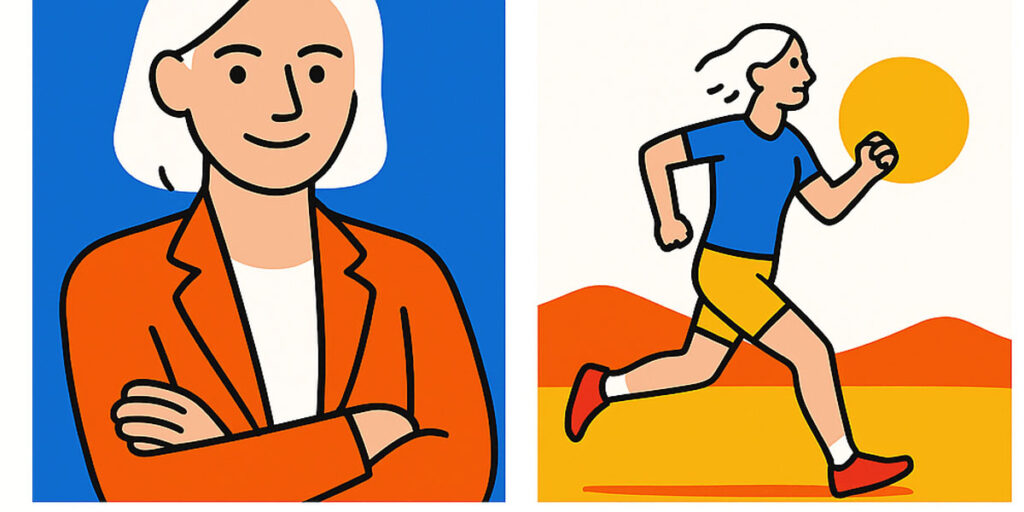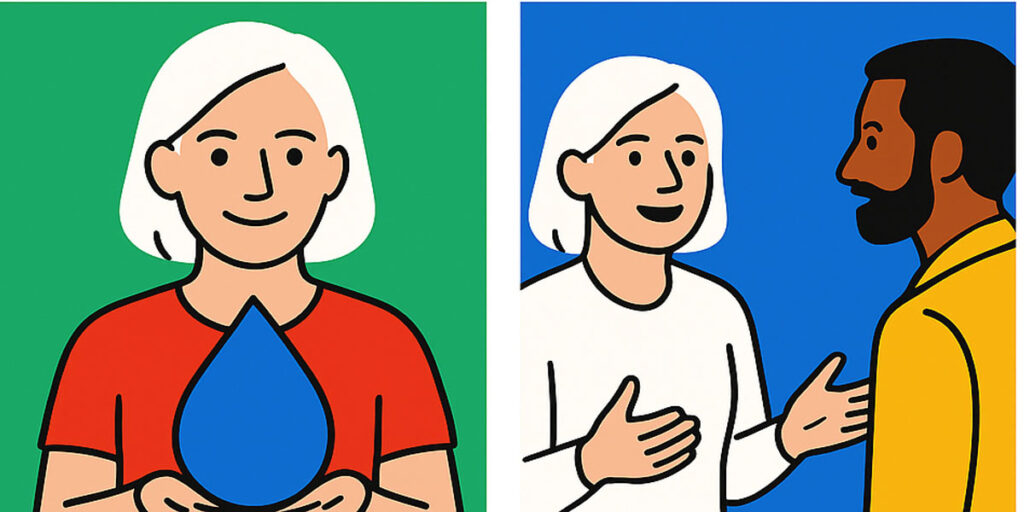Mina Guli’s journey didn’t begin on the tracks. It began in the corridors of commerce and law, where she spent years as a corporate lawyer and climate policy specialist. She was successful by every traditional measure, a sharp thinker with a clear path. But beneath the achievements, she felt something missing. The world was changing—heating, drying, breaking—and she knew her voice had to rise beyond contracts and legislation.
She had always believed in human ability—the power to act, the power to care. But she saw that the world needed more than ideas; it needed visible, undeniable action. That belief, mixed with purpose, turned into motion.
Mina decided she would run. Not just once. Not just a marathon. She would run multiple marathons. Consecutively. In the world’s driest places.
It sounded impossible.
Even to her.
Especially because Mina had once fractured her back. Her doctors had said running would never be in her future. But Mina believed otherwise. She believed that the fire of conviction can melt any boundary the world sets before you.
She founded the Thirst Foundation, not as another non-profit tucked in the corner of good intentions, but as a movement—a loud, visible call to action. Through Thirst, Mina carried her message across continents: that water scarcity is not a problem for “them”—the poor, the remote, the vulnerable. It’s a problem for all of us.
Water touches everything—food, energy, education, health, economy, survival. Yet it is so often invisible until it’s gone.
So Mina made water visible. With grit and heart, she ran across the Gobi Desert, over the icy terrains of Antarctica, through the streets of Mumbai, the savannahs of Africa, and even the urban jungles of New York and London. She ran under the sun, in the rain, through pain, injury, and exhaustion. Because she knew that people wouldn’t forget what they saw. Her sweat and tears would make them see the crisis, feel it, and finally, act.

With every kilometer, she shared stories. Not her own, but those of children walking for hours just to fetch a bucket of dirty water, of farmers whose fields cracked open under relentless droughts, of families whose lives were turned upside down by floods born of mismanaged systems.
Mina didn’t run for applause. She ran to open eyes. She ran so no one could look away.
As she moved, the world moved with her. Schoolchildren joined her cause. Corporations listened. Governments took notes. Partnerships formed. What had started as one woman’s quest became a global wave. Mina didn’t just raise awareness; she created engagement. She turned her foundation into a stage for collaboration—where companies, communities, and youth leaders could build solutions together.
One of her most daring campaigns was the “Run Blue” initiative—a plan to run 200 marathons in one year across the globe. Not for glory, but for purpose. She aimed to connect with 200 companies, demanding they commit to water sustainability. It wasn’t about shaming businesses—it was about guiding them toward action, showing that profit and purpose could run side by side.
Even when injuries forced her to pause physically, Mina didn’t stop. She walked when she couldn’t run. She leaned on others when the pain surged. But she never dropped the baton. Because for Mina, the race was never about finishing first. It was about not stopping at all.
Her voice, once tucked in policy papers and legal briefs, now echoed in schools, parliaments, boardrooms, and rural communities. She wasn’t just a runner anymore—she was a storyteller, a connector, a leader.
Through Mina’s work, water became personal to millions. She showed that water scarcity isn’t just an environmental issue; it’s a human story—intimate, urgent, and entirely solvable if we choose to care.
Her legacy is not written in miles or medals. It’s written in the ripple effects of courage. In young girls who no longer walk miles for water. In farmers who use smarter irrigation. In companies shifting supply chains. In people who look at a dripping tap or a plastic bottle and think differently—because they saw Mina run.
She is proof that you don’t need perfect circumstances to change the world. You need passion, you need a mission, and above all, you need the willingness to act even when it’s hard.
Mina Guli’s story is not a chapter that ends—it’s a living movement. She continues to push, to speak, to move. And she invites all of us to do the same—not with grand gestures, but with conscious, daily choices.
Because every drop counts. Every voice matters. Every step we take toward a better planet is worth it.
And if ever we feel it’s too hard or too late, we need only remember: Mina ran for us.
